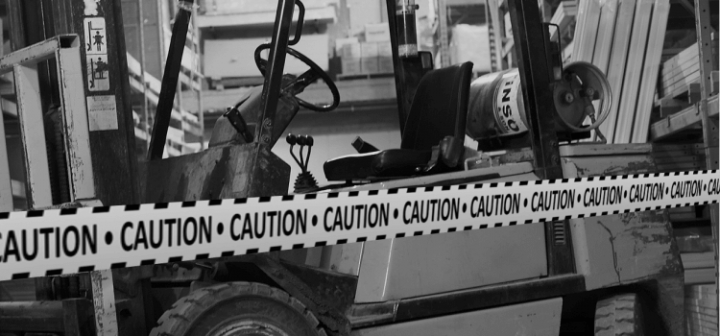What is and what might have been

In an ideal world all hazards are identified and risks mitigated at the planning stage of the task. Unfortunately in the real world sometimes barriers fail and there are unforeseen circumstances which leads to an accident or incident. In these circumstances it is a vital part of the improvement cycle that we conduct a thorough accident / incident investigation to determine root causes in order to prevent any future unwanted events.
Now within this cycle it well to note the semantic difference when referring to incidents and accidents.
So what’s the difference?
Accident: An unplanned unwanted event that results in harm, loss or damage
So we investigate all accidents – good! But remember it’s incident investigation, so what’s an incident?
Incident: An unplanned unwanted event that results in harm, loss or damage or has the potential to cause harm, loss or damage
The key word in this definition is ‘potential’.
In many cases incidents are investigated on the basis of what ‘actually’ happened but not necessarily what ‘could’ have happened. Some people might say “there are lots of things that could happen but didn’t, so why investigate things that never actually happened?”. The key thing is look for is what it was that prevented the incident turning into something more serious. Was it good management, systems and processes or did we just get lucky?
Let’s take two examples of a dropped object:
Incident 1: A heavy object falls 20ft to the ground in an isolated location with a wide exclusion zone that prevents all personnel access. There was no damage to property or people
Incident 2: A heavy object falls 20ft to the ground in a busy working area with full access by all staff. There was no damage to property or people
The result from each incident was the same ‘no damage to property or people’, but it is easy to see that the potential for someone to have been killed or seriously injured in Incident 2 is considerably higher than in Incident 1.
When investigating incidents in the workplace we need to focus on what could have reasonably happened, not what actually did happen. If someone could have been seriously hurt or killed, an investigation must be conducted with the full depth and rigour as if they had been.
This way we learn all we can from relatively inexpensive incidents rather than from very costly accidents.






